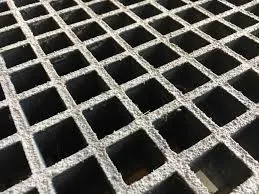
-
 Afrikaans
Afrikaans -
 Albanian
Albanian -
 Amharic
Amharic -
 Arabic
Arabic -
 Armenian
Armenian -
 Azerbaijani
Azerbaijani -
 Basque
Basque -
 Belarusian
Belarusian -
 Bengali
Bengali -
 Bosnian
Bosnian -
 Bulgarian
Bulgarian -
 Catalan
Catalan -
 Cebuano
Cebuano -
 China
China -
 China (Taiwan)
China (Taiwan) -
 Corsican
Corsican -
 Croatian
Croatian -
 Czech
Czech -
 Danish
Danish -
 Dutch
Dutch -
 English
English -
 Esperanto
Esperanto -
 Estonian
Estonian -
 Finnish
Finnish -
 French
French -
 Frisian
Frisian -
 Galician
Galician -
 Georgian
Georgian -
 German
German -
 Greek
Greek -
 Gujarati
Gujarati -
 Haitian Creole
Haitian Creole -
 hausa
hausa -
 hawaiian
hawaiian -
 Hebrew
Hebrew -
 Hindi
Hindi -
 Miao
Miao -
 Hungarian
Hungarian -
 Icelandic
Icelandic -
 igbo
igbo -
 Indonesian
Indonesian -
 irish
irish -
 Italian
Italian -
 Japanese
Japanese -
 Javanese
Javanese -
 Kannada
Kannada -
 kazakh
kazakh -
 Khmer
Khmer -
 Rwandese
Rwandese -
 Korean
Korean -
 Kurdish
Kurdish -
 Kyrgyz
Kyrgyz -
 Lao
Lao -
 Latin
Latin -
 Latvian
Latvian -
 Lithuanian
Lithuanian -
 Luxembourgish
Luxembourgish -
 Macedonian
Macedonian -
 Malgashi
Malgashi -
 Malay
Malay -
 Malayalam
Malayalam -
 Maltese
Maltese -
 Maori
Maori -
 Marathi
Marathi -
 Mongolian
Mongolian -
 Myanmar
Myanmar -
 Nepali
Nepali -
 Norwegian
Norwegian -
 Norwegian
Norwegian -
 Occitan
Occitan -
 Pashto
Pashto -
 Persian
Persian -
 Polish
Polish -
 Portuguese
Portuguese -
 Punjabi
Punjabi -
 Romanian
Romanian -
 Russian
Russian -
 Samoan
Samoan -
 Scottish Gaelic
Scottish Gaelic -
 Serbian
Serbian -
 Sesotho
Sesotho -
 Shona
Shona -
 Sindhi
Sindhi -
 Sinhala
Sinhala -
 Slovak
Slovak -
 Slovenian
Slovenian -
 Somali
Somali -
 Spanish
Spanish -
 Sundanese
Sundanese -
 Swahili
Swahili -
 Swedish
Swedish -
 Tagalog
Tagalog -
 Tajik
Tajik -
 Tamil
Tamil -
 Tatar
Tatar -
 Telugu
Telugu -
 Thai
Thai -
 Turkish
Turkish -
 Turkmen
Turkmen -
 Ukrainian
Ukrainian -
 Urdu
Urdu -
 Uighur
Uighur -
 Uzbek
Uzbek -
 Vietnamese
Vietnamese -
 Welsh
Welsh -
 Bantu
Bantu -
 Yiddish
Yiddish -
 Yoruba
Yoruba -
 Zulu
Zulu
fiberglass boat
The Advantages of Fiberglass Boats A Modern Marvel
Fiberglass boats have revolutionized the marine industry since their inception in the mid-20th century. Lightweight, durable, and versatile, these vessels have become the go-to choice for both recreational and professional boaters. In this article, we explore the benefits of fiberglass boats and why they continue to dominate the market.
Durability and Longevity
One of the most significant advantages of fiberglass boats is their durability. Made from a composite material that includes strands of glass embedded in a resin, fiberglass boats are resistant to rot, rust, and corrosion. Unlike traditional wooden boats, fiberglass does not warp or splinter over time, making it a long-lasting investment for boat owners. Even in harsh marine environments, fiberglass boats maintain their structural integrity, allowing them to endure the rigors of water exposure without significant deterioration.
Low Maintenance
Maintaining a fiberglass boat is generally less time-consuming and costly compared to other materials. Wooden boats require regular sanding, sealing, and varnishing to protect against moisture and pest damage. In contrast, fiberglass boats can be cleaned easily with soap and water, and applying a coat of wax can keep the surface looking glossy and fresh. Additionally, if any repairs are needed, they are usually simpler to execute and less expensive than those required for a wooden vessel.
Lightweight and High Performance
The lightweight nature of fiberglass allows for improved performance on the water. Boats made from this material can reach significant speeds with less power due to reduced drag. This attribute is particularly beneficial for racers and those seeking to engage in water sports like wakeboarding or water skiing. Moreover, a lighter boat is easier to maneuver, load, and transport, making fiberglass an excellent choice for weekend adventurers and families alike.
fiberglass boat

Customization Options
Fiberglass boats offer a broad range of customization options that appeal to many boaters. Manufacturers provide a variety of molds and designs, enabling buyers to choose a vessel that suits their specific needs. Whether it’s a small fishing boat or a luxurious yacht, fiberglass allows for intricate detailing and styles, which can be difficult to achieve with other materials. This flexibility has led to a diverse market where boaters can find a wide selection of models tailored to their preferences.
Environmental Considerations
While the production of fiberglass involves some environmental concerns, the longevity and reduced maintenance requirements of fiberglass boats can contribute to a lower overall ecological footprint. They do not require the use of harmful preservatives or frequent replacement, unlike wooden boats that may have a shorter lifespan. Some manufacturers are also exploring eco-friendly resin options to further minimize the environmental impact of fiberglass production.
Value Retention
Fiberglass boats typically retain their value well over time compared to other materials. Due to their durability, lower maintenance costs, and performance capabilities, many fiberglass vessels can be resold at a competitive price. This makes them an excellent investment for those who may want to upgrade or change boats in the future.
Conclusion
In summary, fiberglass boats represent a significant advancement in marine technology, combining durability, low maintenance, high performance, and customization. They cater to a wide array of boating enthusiasts, from casual fishermen to adventurous racers. With ongoing innovations in materials and construction methods, the popularity of fiberglass boats is likely to continue growing, making them a smart choice for anyone looking to venture onto the water. Whether you're a seasoned sailor or just starting out, investing in a fiberglass boat can enhance your boating experience and provide years of enjoyment.
Latest news
-
Exploring the Benefits of Top Hammer Drifter Rods for Enhanced Drilling PerformanceNewsJun.10,2025
-
High-Precision Fiberglass Winding Machine for GRP/FRP Pipe Production – Reliable & Efficient SolutionsNewsJun.10,2025
-
FRP Pipes & Fittings for Shipbuilding - Corrosion-Resistant & LightweightNewsJun.09,2025
-
Premium FRP Flooring Solutions Durable & Slip-ResistantNewsJun.09,2025
-
Premium Fiberglass Rectangular Tanks Durable & Lightweight SolutionNewsJun.09,2025
-
Tapered Drill String Design Guide Durable Performance & UsesNewsJun.09,2025









